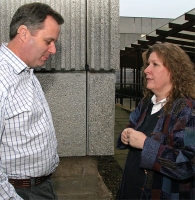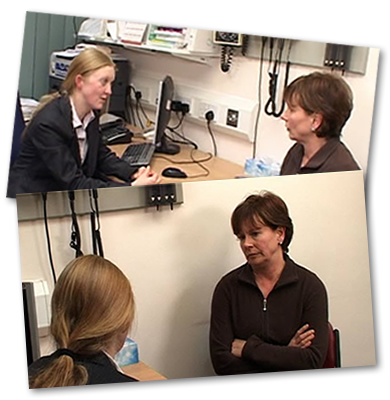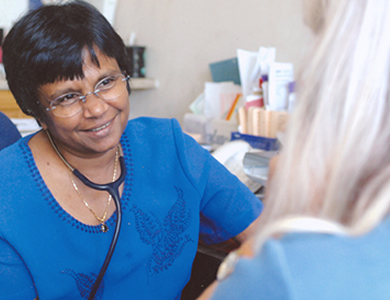Health Inequalities course for GPs



This session considers how social differences between doctor and patient have the potential to contribute to inequalities in health. The example of ‘social class’ is used, but similar principles can be applied to any encounter where there are cultural differences.
This session was reviewed by Khyati Bakhai and last updated in January 2022.
Learning objectives
By the end of this session you will be able to:
- discuss how differences between doctors and patients in socio-cultural background, education and power may impact on patients’ experience of healthcare encounters and thus healthcare outcomes
- describe how you may reduce this impact in the consultation
We will also explore how adopting a number of useful strategies during the consultation, such as exploration of patients’ concerns and expectations and sensitivity to the patient’s agenda, can help reduce the impact of such differences.

Before commencing this session you should:
- have an open mind
- have a desire to reflect on and enhance your practice
Jackie Beavan qualified as a nurse in 1971 and was a hospital nurse until the mid-eighties. Since then, she has worked in education and training and has a special interest in communication, equality and diversity.
She has a BA in English, a BSc in Health Science and an MA in Linguistics. In 2002, she helped to update the second edition of ’Valuing Diversity’, an educational resource for GPs, commissioned by the RCGP and edited by Joe Kai. She was also involved in the research and development of ’PROCEED: Professionals responding to ethnic diversity and cancer’, an educational resource commissioned by Cancer Research UK, also edited by Joe Kai.
Jackie is based at the Interactive Studies Unit in the Department of Primary Care and General Practice at the University of Birmingham. Her main role there is to deliver courses in advanced communication skills to senior health professionals working in cancer care. She is also involved in delivering training in communication, equality and human rights for health professionals and medical students. Currently, she is working with Heart of Birmingham Primary Care Trust on a human rights pilot project in conjunction with the Department of Health and the British Institute of Human Rights.


Joe Kai is Professor and Head of Primary Care at the University of Nottingham’s School of Graduate Medicine. He has been an inner city GP for 18 years, originally in Newcastle upon Tyne where he trained, and as part of the innovative general practice behind the West End Health Resource Centre in Benwell. He now practises in central Derby.
His health services research seeks to enhance care in ethnically diverse and disadvantaged contexts in a range of clinical areas, including applied genetics. He leads a national programme to support genetic assessment and screening, using haemoglobin disorders as a model (www.pegasus.nhs.uk). He currently leads the primary care programme of the NIHR Collaboration on Applied Health Research (CLAHRC) for Nottinghamshire, Derbyshire & Lincolnshire.
His books include Ethnicity, Health & Primary Care (OUP, 2004) and the BMA award winning Primary Care in Urban Disadvantaged Communities (Radcliffe, 2004). He has lead development of widely used educational resources to facilitate interactive health professional training. These include Valuing Diversity (2nd ed, RCGP, 2006), following its award winning first edition in 1999; and PROCEED: Professionals responding to cancer and diversity (Cancer Research UK, 2005) now adopted in national communication skills training for the NHS
- Assessment course for GPs
- Posted By eIntegrity Healthcare e-Learning
- Posted Date: 2025-03-10
- Location:Online
- This session describes the main tools used to assess trainee GPs and distinguishes between formative...
- Self Appraisal course for GPs
- Posted By eIntegrity Healthcare e-Learning
- Posted Date: 2025-03-10
- Location:Online
- This session describes an approach to self-appraisal, and provides practical tips and guidance about...
- Telephone Consultations course for GPs
- Posted By eIntegrity Healthcare e-Learning
- Posted Date: 2025-03-10
- Location:Online
- This session explores the issues that may arise when a consultation is conducted over the telephone,...
- Difficult Consultations course for GPs
- Posted By eIntegrity Healthcare e-Learning
- Posted Date: 2025-03-10
- Location:Online
- This interactive session explores some of the difficulties associated with patients whose behaviour ...
- Balint's Ideas course for GPs
- Posted By eIntegrity Healthcare e-Learning
- Posted Date: 2025-03-10
- Location:Online
- This session introduces Michael Balint, outlines his principal ideas and describes his innovative us...







